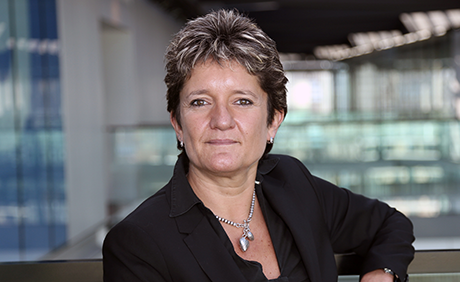Liz Bingham OBE is a Managing Partner at EY, with responsibility for the firm's Employer Brand and People Engagement and Development Strategy. Following the launch of the MCA's Year of Diversity, Liz spoke to the MCA about diversity in the consulting industry.
You recently helped us to launch the MCA’S Year of Diversity. What do you think the year can achieve, and what would be your advice to all our member firms on how to take advantage of it?
We have made some progress on the agenda, but it has been slow. I fear that with recent political events, we may start to go backwards. So I think the Year of Diversity is a really good opportunity for member firms and business more generally to be reminded that this is an area where we need to continue to focus. A good starting point for member firms is to hold a mirror up and honestly reflect on how well they feel they are already doing on this agenda, and if necessary, seek help from subject matter specialists and other advisors who might help them to get galvanised. It is also important to think about the resources and talent within their own organisations, and engage with them on this agenda.
When you look at the industry through the diversity and inclusion lens, are there particular strengths and weaknesses that you can see?
I think the UK and US are making significant progress. I feel the consulting industry is behind in areas such as social mobility and race, as a profession we are still quite white, male and middle class.
In your experience, what is the real business case for diversity and inclusion?
It probably starts from an ability to attract talent. Most mature markets now have an aging population so our traditional source of talent is not necessarily going to be as abundant as it has been in the past. We need to attract talent through different sources and once in our organisations, that talent needs to be encouraged to engage, participate and thrive. The key to bringing all of this to life is that all of our businesses and clients are facing a very uncertain world of super-fast change, which means that the ability to innovate and solve complex problems that we’ve never encountered before is absolutely crucial. If we can’t access the different talents and the different experiences and mind-sets in our organisation, then we won’t be able to innovate and problem solve, and we’ll quickly become quite obsolete.
How should consultancies be working with their clients to get the right results on diversity and inclusion?
This is ever more present as a topic on our client’s agenda. They are now expecting and demanding that diversity is included in their supply chain, which will include the consultants that they work with. From an EY perspective, we’re really starting to see the level of engagement on this topic increase. Partners see their clients coming in to our building to talk about this topic, so it became a virtuous circle of “if our clients are interested, we need to get interested” and so it’s started to really create momentum.
Looking back on your own career in EY over 30 years, what changes have you seen in consulting that are most important in your eyes?
The key thing on this topic is we have moved on from when we were described as being a meritocracy which would have opportunities to be successful regardless of background, gender, ethnicity, but where those opportunities where disguised in a particular way. As long as you operated, behaved and looked like the senior leaders, you would have that opportunity. We have moved forward now to understanding that we don’t want everybody to work same way, and look the same. We want to give everybody equal opportunities regardless of their background, but actually we want them to continue to bring those differences to the firm and clients rather than to feel that they have to start conforming. I think we have a much deeper and more sophisticated understanding of what this agenda is all about.
What changes do you most look forward to over the next 5 years or so?
My big ambition would be if we stopped talking about this, because we can see we achieved our objectives but I don’t think that’s in 5 or 10 years! I would like to see a much more authentic application of this kind of leadership and change as there is still quite a bit of lip service. The language of discrimination has been buried, it hasn’t been neutralised. If we could get to a point where everyone understands that this agenda is not just for women, ethnic minorities, LGBT or disabled people. This is an agenda for everybody as everybody is different from everybody else and has a different approach and experience to bring. That would be a fantastic step forward. People would then start to own the agenda with authenticity because they would understand that it related to them as much as it related to somebody who is different to them.
You have lead many initiatives, in EY and beyond. What are you most proud of?
I think the one that has had the most impact and is most sustainable is the programme around inclusive leadership and conscious decision making. This is partly around the diversity and inclusion agenda but more than that it helps people understand how they can be more respected leaders of their own teams and leaders in client situations. Being trained at conscious decision making or inclusive leadership means they can use that leadership lens start to really think about neutralising bias and improving business performance.

